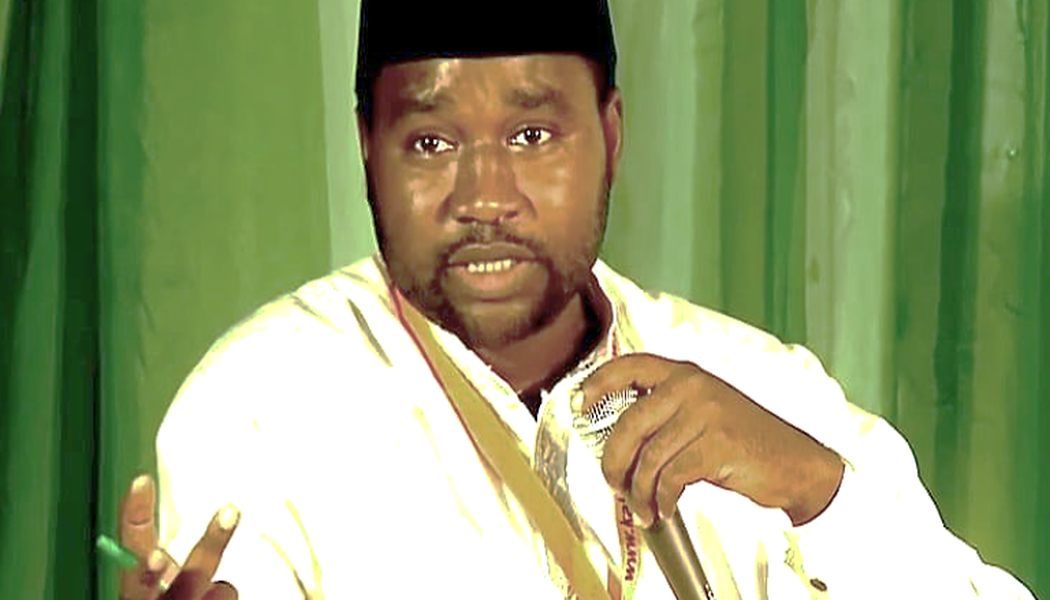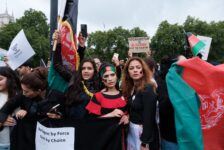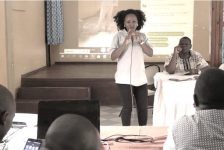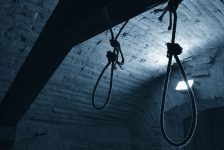It is now 45 days since Mubarak Bala was arrested on suspicion of blasphemy in Kaduna, Nigeria. Apart from a brief ‘phone call with his lawyer on April 29, and contrary to Mubarak’s guaranteed rights, police authorities have refused to divulge his whereabouts and have denied him access to his lawyers. Furthermore, police in Nigeria have a legal duty either to charge a suspect within 48 hours of arrest or to release them. This obligation has been ignored.
Timeline of events
Despite this, a lot has happened and it’s worth spelling out the chronology of events. Please note, because of security concerns, we have not given exact dates of court hearings.
April 27: S. S. Umar & Co, a law firm from Kano, Nigeria, lodged a complaint with the Kano State Police Commissioner. The complaint mentioned that Mubarak’s Facebook posts are “provocative and annoying to the Muslims”.
April 28: Mubarak was arrested at his home in Kaduna and taken to Gbabasawa police station.
April 29: Mubarak was released into the custody of the Kano Police Command and held at an undisclosed location in Kano State. This in itself is of great concern as Kano has a history of killings and violence against people accused of blasphemy and Mubarak has received multiple death threats from people living in Kano.
April: Atheist and humanist organizations from around the world lobbied officials across Nigeria including the President and Federal Attorney-General together with international human rights organizations and governments. There is no doubt that government ministers in Nigeria are aware of the intense international interest in Mubarak’s case.
May 08: Mubarak’s lawyers filed a petition at the Federal High Court for enforcement of his fundamental human rights. The petition declared that Mubarak’s arrest and continued detention infringed his rights to Personal Liberty, a Fair Hearing, Freedom of Thought, Freedom of Expression and Freedom of Movement. Furthermore, it declared that denying Mubarak access to legal representation is a gross infringement of his constitutional rights. The respondents were named as the Inspector General of Police, The Nigeria Police Force and the Attorney General of the Federation.
May 25: Court clerks issue this date for hearing the Fundamental Human Rights case at the Federal High Court in Abuja. This turned out to be a Public Holiday so no hearing took place and a new date is being arranged.
1st week June: A date was issued for a pretrial hearing of the case against Mubarak in Kano. The only information provided for Mubarak’s lawyers was a handwritten transcript of the original complaint. No formal charges were provided. On the day of the hearing, the prosecuting counsel was not present and nor was the judge. Counsel said he was unwell and the judge had suffered an accident. Case adjourned.
2nd week June: A new date was issued for the pretrial hearing of Mubarak’s case in Kano. The judge and prosecuting counsel were present but the judge excused himself because of a meeting he needed to attend. Mubarak was not present. Mubarak’s lawyer reminded the judge that a condition for continuing the pretrial hearing was to be given access to his client. The judge called the Kano police to see if they would permit this. The police claimed it was not possible because Mubarak had been sent back to Kaduna. The defense lawyers applied for a court order to see Mubarak but the judge rejected the application and asked for it to be made again in one week’s time. No explanation was offered for this bizarre decision.
Conclusion
The level of publicity and the storm of outrage on social media has guaranteed this case has a political dimension. This means the Nigerian judiciary has to look over its shoulder to avoid offending their political masters. And the political masters, in turn, have to look over their shoulders and take account of Muslim sentiment in this deeply Islamic state.
The state has a duty above all to ensure Mubarak’s safety. That would be best served by sending Mubarak to Abuja or Lagos for his trial but, no doubt, that would cause outrage. Caught between a rock and a hard place, the Kano police and judiciary seem at a loss. Do they do the right thing and follow the Constitution of the Federal Republic or do they assuage the feelings of the public and ensure Mubarak suffers for his flippancy toward Islam? Do they outrage international opinion or outrage the man in the street in Kano?
There is only one honest and proper answer to this conundrum. First, they must guarantee Mubarak’s safety and second, they must grant Mubarak his constitutional rights. He should be released immediately and paid compensation for illegal detention. The charges should be dropped without reservation. They cannot charge Mubarak under the Shariah code because he is not a Muslim. They could charge him with blasphemy under the North’s Penal Code but should not because the Constitution provides for freedom of expression which overrides the blasphemy sections in the Penal Code.
That leaves the police with one option, to prosecute Mubarak under Section 26(1)(c) of the Cybercrimes Act. This too would be an act of folly. This section of the act outlaws intentionally threatening people because they belong “to a group distinguished by race, colour, descent, national or ethnic origin…”—this clause is intended to prevent racism! Threatening people because of their religion COULD fall under this clause but ONLY if religion is “used as a pretext” for race, colour, descent, national or ethnic origin and only if the effect is to threaten people. Mubarak has never threatened anyone.
These charges are as dishonest as is holding a person incommunicado for 45 days. Set Mubarak free!
« Free Mubarak Bala!
« 14 days Update
Happy Birthday My Brother Mubarak Bala »









